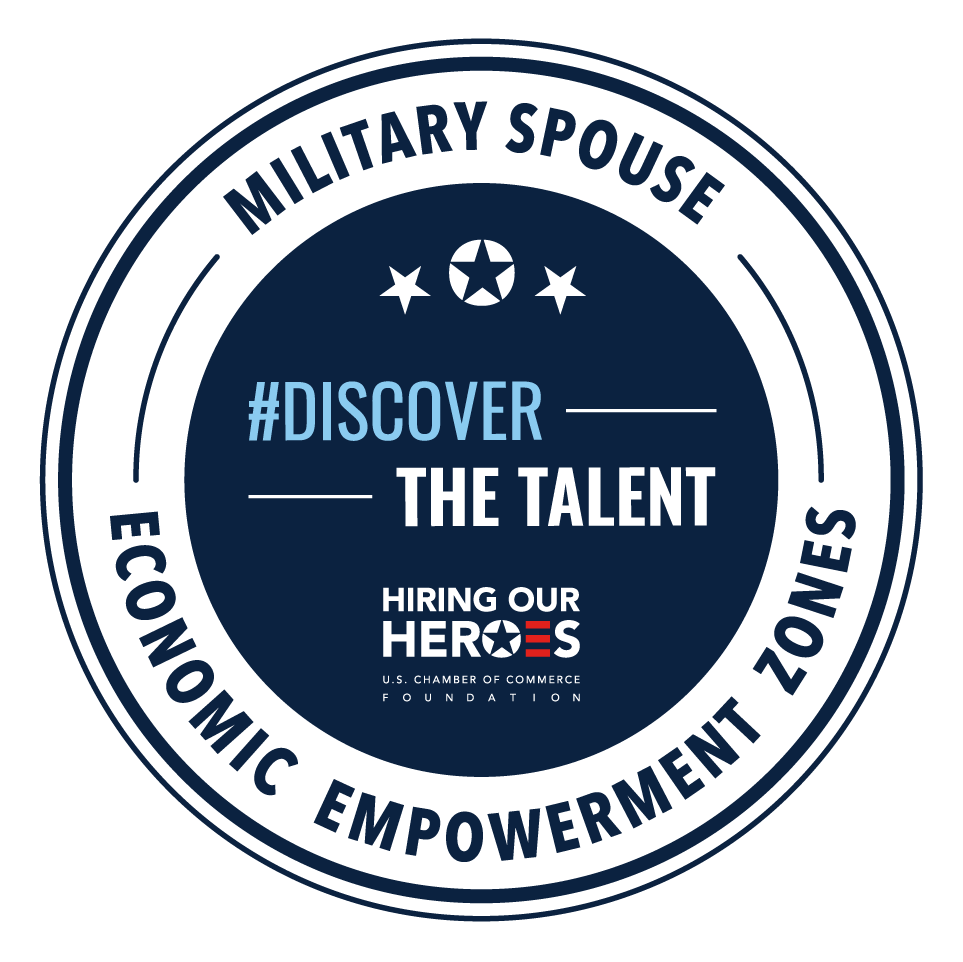 Rossmery Oakes is an Air Force spouse of nine years and also happens to be one of Powerhouse Planning’s uber-talented freelance graphic and web designers. When we launched our Empowering the Homefront initiative in January 2023, Rossmery was right there volunteering to be a part of giving back to the military spouse community, one of the most overqualified and underappreciated communities there is.
Rossmery Oakes is an Air Force spouse of nine years and also happens to be one of Powerhouse Planning’s uber-talented freelance graphic and web designers. When we launched our Empowering the Homefront initiative in January 2023, Rossmery was right there volunteering to be a part of giving back to the military spouse community, one of the most overqualified and underappreciated communities there is.
Rossmery and her husband, Chris, grew up in the same hometown. In fact, when Rossmery was in sixth grade, her family moved to the same street Chris’ family lived on. It may seem inevitable that the two were “middle school sweethearts” who transitioned into being best friends throughout high school. Still, that initial connection never went away, and they started dating seriously in college and never looked back. Together, they have been through four PCSs, with the last one being the first their daughter, Gabby, also experienced. “That was challenging,” Rossmery recalls. “For me, I love PCSs. Obviously, they’re stressful, but the thrill of moving somewhere new, learning all the new things of a place is exciting.” But moving with a baby was a whole other level of “excitement.”
With Chris driving their two dogs, Rossmery enlisted her parents to help her fly halfway across the country with Gabby. As we all know too well, things never go smoothly during a PCS. For a variety of reasons, Rossmery’s parents ended up flying a day later, leaving Rossmery to travel with the baby and arrive at a new house alone. Luckily, for some reason, a lone recliner was left behind in their new home, and that first night, Rossmery slept in that recliner before being reunited the next day with the rest of her family.
When Chris first joined the Air Force, the military experience wasn’t something Rossmery necessarily knew she could handle so well. “I was completely unprepared for military life. It’s a very different lifestyle from civilian life. I didn’t expect it would be so different, but it teaches you a lot of things,” she says. One of those lessons is learning how to navigate a career as a military spouse. “I was in my last two years of college when our military journey started and spent some time settling for jobs unrelated to my career field just to have income,” she says. “It’s hard to convince employers to invest in the uncertainty of knowing how long you’ll be there. In fact, my first job gave me a temporary position instead of the job I applied for. I worked that temporary job the whole time, but they were so reluctant to just hire me outright.”
Being a military spouse did make her eligible for the Military Spouse Career Advancement Accounts (MyCAA) program, which gave her a grant to use for accreditation in coding and web development, an accreditation that she’s leveraged along the way to become a graphic designer as well. “My bachelor’s is in biology. I actually wanted to enter teaching or research, but those aren’t military-friendly fields,” she says. “So, I started with the coding program and expanded on that. Ultimately, that opportunity and hard work landed me at Powerhouse.”
Having the ability to freelance and work remotely allows Rossmery to balance the unique needs of military life, from working around her husband’s Air Force schedule to being able to carry her career with her no matter where they’re stationed. Yet, career advice isn’t the thing Rossmery lands on when we asked her what she wishes military spouses knew before or shortly after entering military life. “Lean on financial education,” she stresses. “[The military] has programs out there, but they’re primarily targeted at the military member. Military finances work so differently. You have to know about things like PCSs and TDYs, deployment pay, bonuses, and how money works around those things. Talk with your spouse, attend the programs you can find, and use your network. It’s so important.”
Networking is huge for Rossmery. Aside from finances, she recommends joining Facebook groups centered around places you’re going to live, the Military OneSource website for all kinds of resources, and the MyCAA grant program if you’re interested in school options. “Facebooks groups especially are a great resource,” she says. “They offer you all the things you won’t get from official sources. You can really get a feel for what a base is going to be like just from the Facebook groups.”
As for the dreaded deployments, Rossmery offers up a couple of pieces of advice. “Make plans for yourself for while your spouse is going to be gone. For me, that looks like trips, family visits, etc.—things I can schedule that give me something to look forward to throughout the deployment,” she says. “And my second piece of advice is reach out, especially to stay-at-home spouses, not necessarily during your spouse’s deployment, but when you know others are deployed. Adopt a friend and check on them often. Bring them dinner or invite them on an outing. Offer free babysitting. I’m fortunate enough to have been adopted by military spouses before, and I know how much it can make a difference. Lean on your military spouse community because no one knows how to get through it quite like other military spouses.”
As for her military spouse motto, Rossmery pointed us to something her husband Chris says. “When he’s stressed, he’ll say, ‘It’s a great day’ over and over until he starts to believe it. Being a military spouse is great, but there are days when you’ll need to repeat ‘It’s a great day’ more than once.” At Powerhouse, we are thankful that Rossmery chooses to share her days and her talents with us and that she is such an asset not only to our clients but also to Empowering the Homefront.
Did you enjoy this article? Read the full e-magazine, here.


